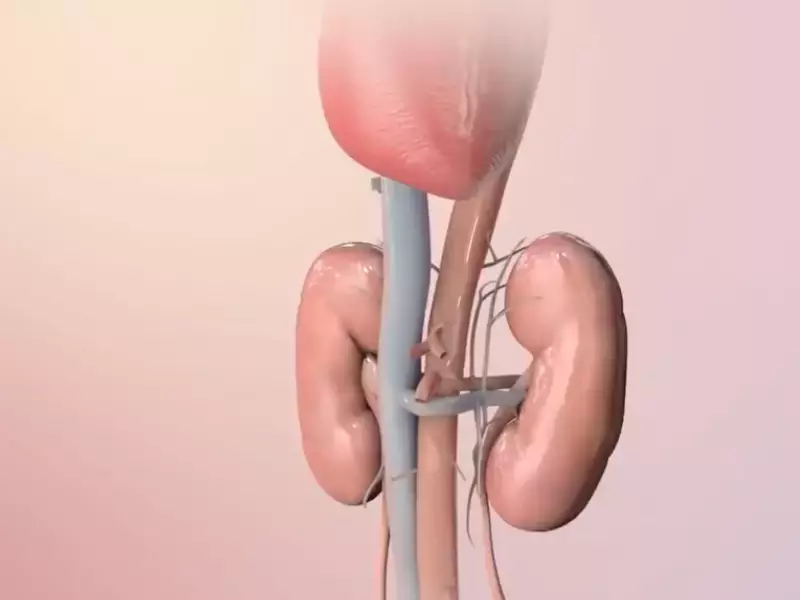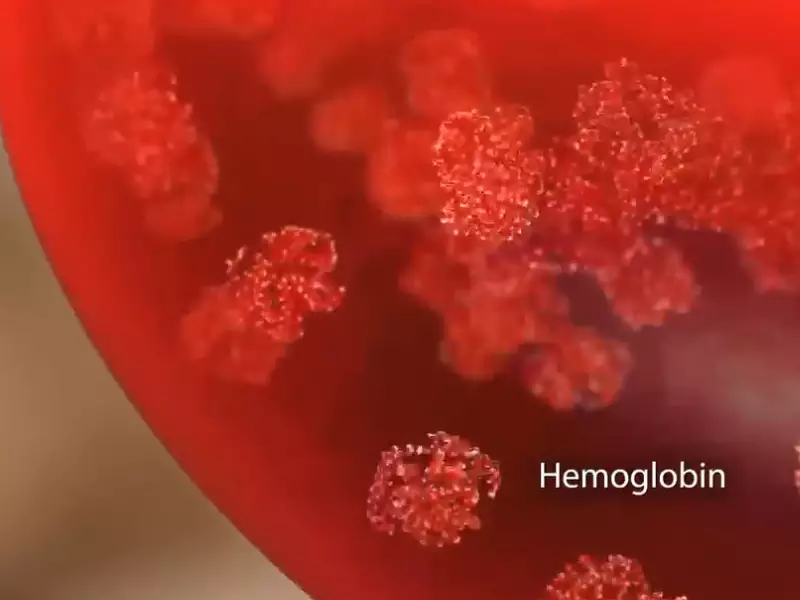Hemoglobin and creatinine are two critical markers in the medical world, each playing a unique role in assessing our health. Hemoglobin, a protein in red blood cells, carries oxygen throughout the body, while creatinine, a waste product found in the blood, is a key indicator of kidney function. The relationship between these two markers is more than just a curiosity; it’s a window into the body’s complex systems and their interplay.
The relation between hemoglobin and creatinine hinges on their roles in the body’s overall health. Hemoglobin levels can influence kidney function, and changes in kidney function can, in turn, affect hemoglobin levels. This interconnection is crucial for diagnosing and managing conditions like chronic kidney disease, where both markers are often closely monitored.
In the medical field, understanding how hemoglobin and creatinine levels influence each other helps physicians diagnose and treat various conditions. For instance, low hemoglobin can signal anemia, often a consequence of chronic kidney disease, which in turn may lead to elevated creatinine levels as the kidneys’ ability to filter waste diminishes. This insight into their relationship is vital for comprehensive care, guiding treatment plans that address the root causes of changes in these markers.

Hemoglobin Basics
Definition and Function
Hemoglobin is a protein in red blood cells responsible for transporting oxygen from the lungs to the body’s tissues and returning carbon dioxide from the tissues back to the lungs. This protein gives blood its red color and plays a crucial role in maintaining the energy level and overall health of an individual. Hemoglobin contains iron, which enables it to bind to oxygen and carbon dioxide efficiently.
Normal Hemoglobin Levels
Normal hemoglobin levels vary depending on age and gender. For adult men, the typical range is between 13.8 to 17.2 grams per deciliter (g/dL), while for adult women, it is from 12.1 to 15.1 g/dL. These levels can fluctuate due to various factors, including altitude, pregnancy, and health conditions.
Creatinine Explained
Definition and Role
Creatinine is a waste product produced by the normal wear and tear of muscle tissue. The kidneys filter out this waste, and its level in the blood can indicate how well the kidneys are functioning. Higher levels of creatinine may suggest impaired kidney function or kidney disease. Monitoring creatinine levels is crucial for diagnosing and managing kidney health.
Normal Creatinine Levels
The normal range for creatinine in the blood is approximately 0.84 to 1.21 milligrams per deciliter (mg/dL) for adult men and 0.56 to 1.00 mg/dL for adult women. These values can vary based on muscle mass, age, and the individual’s overall health.
Linking Hemoglobin and Creatinine
Overview of the Biological Connection
The relationship between hemoglobin and creatinine is significant in medical diagnostics as it helps in understanding the overall health of the kidneys and the circulatory system. Both parameters are essential for diagnosing conditions like chronic kidney disease (CKD), where both kidney function and oxygen transport are affected.
How Changes in One Affect the Other
Changes in creatinine levels can indicate alterations in kidney function, which in turn can affect hemoglobin levels due to the kidneys’ role in producing erythropoietin. This hormone stimulates the production of red blood cells and, consequently, hemoglobin. If the kidneys are damaged, they may produce less erythropoietin, leading to anemia and lower hemoglobin levels.
Health Implications
Kidney Function
Creatinine levels as kidney function indicators
Creatinine levels are a key indicator of kidney function. Elevated levels can signal that the kidneys are not effectively filtering waste from the blood, potentially indicating kidney disease or impaired kidney function.
Hemoglobin’s role in kidney disease
In kidney disease, the decreased production of erythropoietin can lead to anemia, characterized by reduced hemoglobin levels. This condition can cause fatigue, weakness, and other health issues, emphasizing the importance of monitoring hemoglobin levels in patients with kidney disease.
Chronic Diseases
Impact on hemoglobin and creatinine levels
Chronic diseases such as diabetes and hypertension can negatively impact both hemoglobin and creatinine levels. Diabetes can damage the kidneys over time, affecting their ability to filter waste, including creatinine. Hypertension can also harm the kidneys and reduce erythropoietin production, leading to lower hemoglobin levels.
Examples: Diabetes, hypertension
Both diabetes and hypertension are risk factors for chronic kidney disease, which can lead to changes in hemoglobin and creatinine levels. Managing these conditions is crucial to prevent kidney damage and maintain normal levels of hemoglobin and creatinine.
Diagnostic Uses
Blood tests for hemoglobin and creatinine
Blood tests to measure hemoglobin and creatinine levels are standard procedures for diagnosing and monitoring various health conditions. These tests can help identify kidney issues, anemia, and other underlying health problems.
Interpreting results
Interpreting the results of hemoglobin and creatinine tests requires understanding the normal ranges and considering individual factors such as age, gender, and medical history. Abnormal levels may necessitate further testing and medical evaluation to determine the underlying cause and appropriate treatment.

Factors Influencing Levels
Diet and Nutrition
Foods Impacting Hemoglobin and Creatinine
Diet plays a significant role in managing hemoglobin and creatinine levels. Foods rich in iron, such as red meat, spinach, and lentils, can boost hemoglobin levels. Conversely, consuming large amounts of protein can increase creatinine levels because protein metabolism generates creatinine as a waste product. It’s essential to maintain a balanced diet to support healthy levels of both markers.
Key Foods for Hemoglobin:
- Red meat
- Leafy greens
- Iron-fortified cereals
Foods to Monitor for Creatinine:
- High-protein diets
- Supplements containing creatine
Physical Activity
Exercise’s Effect on Levels
Moderate exercise can have beneficial effects on both hemoglobin and creatinine levels. For hemoglobin, regular physical activity increases the body’s production of red blood cells, thereby boosting hemoglobin levels. Regarding creatinine, exercise can help maintain optimal kidney function by improving blood flow and aiding in the efficient removal of waste products, including creatinine. However, excessive exercise, especially in bodybuilders or athletes consuming large amounts of protein supplements, can elevate creatinine temporarily.
Medications
Common Drugs That Alter Hemoglobin and Creatinine
Certain medications can impact the levels of hemoglobin and creatinine, highlighting the need for regular monitoring when on these drugs.
Medications Affecting Hemoglobin:
- Chemotherapy drugs
- Antiretroviral drugs
- Some antibiotics
Medications Impacting Creatinine:
- NSAIDs (e.g., ibuprofen)
- ACE inhibitors
- Some antibiotics
Patients should always consult with their healthcare provider about potential side effects of their medications on hemoglobin and creatinine levels.
Managing Levels
Lifestyle Changes
Diet, Exercise, and Habits
Managing levels of hemoglobin and creatinine often involves lifestyle adjustments. A balanced diet, regular exercise, and avoiding habits like smoking can significantly improve these levels. For individuals with kidney issues or those at risk of anemia, these changes are even more critical. Implementing a diet low in processed foods and rich in fruits, vegetables, and lean proteins can support kidney health and maintain optimal hemoglobin levels.
Medical Treatments
When to Seek Medical Advice
If routine tests show abnormal levels of hemoglobin or creatinine, it may be time to seek medical advice. Symptoms like fatigue, difficulty breathing, swelling, or changes in urine output can indicate problems requiring medical intervention.
Treatment Options for Imbalances
Treatment for imbalances in hemoglobin and creatinine levels depends on the underlying cause. For low hemoglobin, options may include iron supplements or erythropoietin injections. Elevated creatinine levels might necessitate changes in medication, dietary adjustments, or, in more severe cases, dialysis.
Case Studies
Real-life Examples of Hemoglobin and Creatinine Management
Case Study 1: Managing Anemia in CKD
John, a 58-year-old with chronic kidney disease (CKD), experienced low hemoglobin levels indicative of anemia. His treatment plan included erythropoietin injections and iron supplements. Regular monitoring showed improvement in his hemoglobin levels, reducing symptoms like fatigue and improving his quality of life.
Case Study 2: Addressing High Creatinine through Diet and Medication Adjustment
Maria, a 45-year-old with a recent diagnosis of elevated creatinine levels, was advised to modify her diet to reduce protein intake and manage her blood pressure with medication adjustments. These changes, along with increased hydration and monitoring, led to a significant decrease in her creatinine levels.
FAQs
What affects hemoglobin levels?
Several factors can influence hemoglobin levels, including nutrition, chronic diseases, certain medications, and even hydration status. Iron deficiency, vitamin B12 or folate deficiency, and chronic conditions like kidney disease can lead to anemia, reducing hemoglobin levels. Conversely, dehydration can artificially elevate hemoglobin concentrations.
How can I lower my creatinine levels?
To lower creatinine levels, focus on maintaining a healthy lifestyle and managing underlying conditions. This includes staying hydrated, limiting intake of red meat, and avoiding creatine supplements. Additionally, controlling blood pressure and sugar levels, especially in individuals with diabetes or hypertension, can improve kidney function and lower creatinine levels.
Why are hemoglobin and creatinine tested together?
Hemoglobin and creatinine are often tested together to provide a more comprehensive overview of a person’s health, especially regarding the kidneys and blood. Since changes in kidney function can affect hemoglobin levels and vice versa, testing both can help diagnose, monitor, and manage conditions like chronic kidney disease more effectively.
Can exercise affect hemoglobin and creatinine levels?
Yes, exercise can impact both hemoglobin and creatinine levels. Regular, moderate exercise can help maintain healthy hemoglobin levels by improving overall health and increasing red blood cell production. However, intense exercise can temporarily raise creatinine levels due to increased muscle breakdown.
Conclusion
The intricate relationship between hemoglobin and creatinine levels offers invaluable insights into our health, particularly regarding the efficiency of oxygen transport and kidney function. By understanding and monitoring these markers, healthcare professionals can diagnose and manage conditions more effectively, ensuring that treatments are tailored to the individual’s specific needs.
Recognizing the significance of hemoglobin and creatinine in medical diagnostics underscores the importance of regular health screenings. Such screenings can detect early signs of imbalance, enabling timely intervention and potentially preventing the progression of underlying conditions. This emphasizes not just the complexity of our bodily systems but also the power of informed, proactive health management.
